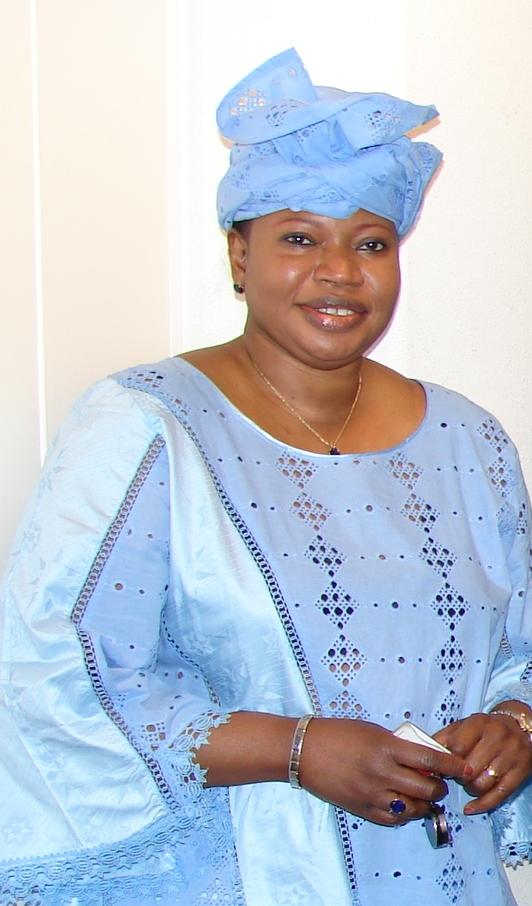 In recognition of Fatou Bensouda’s recent election as Chief Prosecutor of the International Crimial Court (ICC), SEN Jounal: Online Exclusives is delighted to present excerpts from SEN’s interview with Mrs Bensouda, originally published in Volume 11, Issue 1 (April 2011).
In recognition of Fatou Bensouda’s recent election as Chief Prosecutor of the International Crimial Court (ICC), SEN Jounal: Online Exclusives is delighted to present excerpts from SEN’s interview with Mrs Bensouda, originally published in Volume 11, Issue 1 (April 2011).
Before becoming Chief Prosecutor in December 2011, Mrs Bensouda served as Deputy Prosecutor to the ICC from 2004. Drawing on her long-term experience in the Court as well as her previous diverse career in Gambia and at the ICTR, Mrs Bensouda highlights the need to see the ICC as part of an international criminal justice system that relies on the principle of ‘complementarity’ between international institutions and state parties. In addition, Mrs Bensouda argues that, instead of seeing the relationship between African states and the ICC as one of tension, Africa has in fact been taking a leading role within this particular justicial mechanism. The commitment of African state leaders to international criminal justice has been reaffirmed through their participation in the Review Conference in Kampala as recently as June 2010.
Click here to access the full journal article.
SEN: In order to start, Mrs Bensouda, could you give us a brief description of your career path into the ICC and your [then] current role as the Deputy Prosecutor?
Bensouda: I was elected as the Deputy Prosecutor of the ICC by the Assembly of the State Parties in September of 2004 … prior to becoming the Deputy Prosecutor of the ICC, I worked as a legal adviser and trial attorney in the International Criminal Tribunal for Rwanda, both in Kigali, Rwanda and Arusha, Tanzania … I worked also as General Manager of a leading commercial bank in Gambia and prior to that I was the Attorney General and Justice Minister … I had [also] gone through successive ranks in my country: I had been a State Counsel, Senior State Counsel, Principal State Counsel, Deputy Director of Public Prosecutions, Solicitor General and Legal Secretary and, finally, the Attorney General and Minister of Justice …
SEN: What are some of the other challenges that the Deputy Prosecutor faces?
Bensouda: … in my [previous] role, [challenges] start with the investigations. You need to remember that you are conducting investigations during on-going conflicts. The office of the Prosecutor is set up in such a way that prosecutors are not just confined to prosecuting the case in the Court. In fact, from the very beginning, when or even before the Prosecutor announces the prosecution, our division plays a role when the information is collected. We give legal advice during the analysis phase of the case … there are often many logistical obstacles that we face during investigation. In the Darfur case, for example, we had no access to the crime scene. We had to consider how to approach victims without endangering them. We had to consider particular implications, and we have to do this, not only in the Darfur case but in all situations, without drawing attention to what we are doing or to those we are interacting with … Another challenge for us is the communication with witnesses. This means that we have to find people who are qualified to interpret often complex legal terms … witness security is very important for us. It is the highest priority for our office. When we investigate, we have to make sure that these witnesses are protected; that they are not exposed. In all these years of investigations, thankfully, no ICC witness has been attacked, and this is something we have to keep this way. Another significant challenge of course remains the executing of arrest. The ICC as in institution has a mandate, but we have no army, we have no police. Arrest continues to be the obligation of state parties and it is not always easy for us to have a body brought to court for ICC prosecution to start.
SEN: As one of the main criticisms against the ICC, do you think the issue of enforcement could or needs to be solved?
Bensouda: … The ICC was set up exactly as state parties wanted it to be. The ICC [resulted from] negotiations of the state parties and what they wanted is the set up in the statute. And what the statute set up was not a court … The ICC is an international criminal justice system. Whereas the court has a mandate, the state parties, by signing the Rome Statute, are obliged to execute the decisions of the ICC. The state has a very big role to play and responsibility to assist and facilitate the investigations of the court for the court to be effective …
